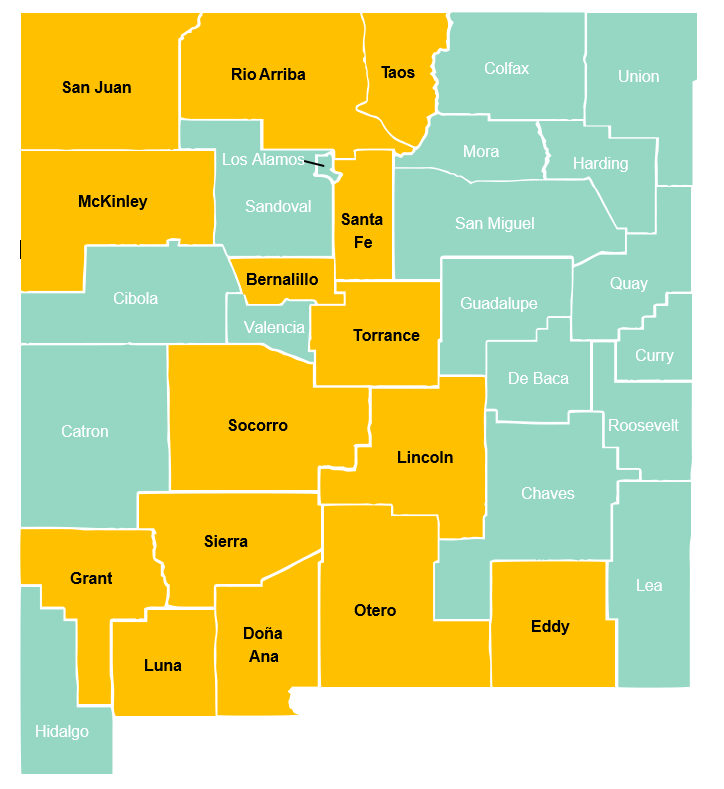Welcome to the New Mexico Prevention website
The Office of Substance Abuse Prevention (OSAP) is part of the Behavioral Health Services Division of the New Mexico Health Care Authority. The New Mexico Prevention website was developed to provide information about OSAP funded programs and initiatives, including documents and resources relevant to substance misuse prevention efforts across the state.
OSAP oversees and supports an integrated and comprehensive substance misuse prevention services delivery system through the promotion of sound policy, effective practice, and cooperative partnerships. It provides the infrastructure and other necessary support to local stakeholders as they select evidence-based policies, programs, and practices, implement their prevention plans with fidelity to best-practice standards, and monitor substance misuse indicators in their communities. OSAP is dedicated to improving and maximizing the impact of New Mexico’s substance misuse prevention resources so that the negative impacts of alcohol, tobacco and other drug misuse are minimized across the state.
Priorities include:
- Underage Drinking
- Adult Binge Drinking
- Adult DWI
- Prescription opioid misuse
- Opioid related Overdose Deaths
- Polysubstance use
- Youth (underage) cannabis use
- Teen vape (e-cigarette use)
Service Providers
In fiscal year 2026, OSAP is helping to fund organizations and coalitions to engage in prevention activities in 15 counties across the state. The county tabs to the right contain contact information for the local agencies receiving prevention funding from OSAP.

Current State Level Prevention Projects
In addition to community-based prevention work, OSAP coordinates state-level partnerships that support and contribute to the work at the local level. Effective, aligned substance abuse prevention initiatives can minimize problem behaviors and prevent a host of other public health, education and social problems. Two important partnerships OSAP coordinates are the Statewide Epidemiological and Outcomes Workgroup (SEOW) and the Prevent Prescription Drug/Opioid Overdose-Related Deaths (PDO) Project.
Completed State Level Prevention Projects
OSAP Staff
Contact Information
Office of Substance Abuse Prevention
Behavioral Health Services Division
Health Care Authority
P.O. Box 2348
Santa Fe, New Mexico 87504
Call: (505) 476-9266
Consolidated Customer Service Center: 1-800-283-4465
Fax: (505) 476-9277 or (505) 476-9272
OSAP Staff
Jennifer Guhl
Program Manager
Jennifer.Guhl@hca.nm.gov
Michael Miller
Program Manager
Michael.miller@hca.nm.gov
Michael Padilla
Operations Manager
Prevention and Substance Use Disorder Services
Michael.Padilla@hca.nm.gov
Consultants

Opioid safety and treatment in New Mexico
